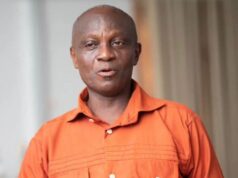Evangelist Billy Graham — a confidant to presidents, a guiding light to generations of American evangelicals and a globe-trotting preacher who converted millions to Christianity — died Wednesday at the age of 99, his spokesman confirmed to CNN.
Graham passed away at his home in Montreat, North Carolina, spokesman Jeremy Blume said.
The skinny preacher with the booming voice evangelized to nearly 215 million people over six decades and prayed with every US president since Harry Truman.
Several presidents, including Lyndon Johnson, George W. Bush and Bill Clinton, relied closely on his spiritual counsel.
He was tall and handsome, with a disarming aw-shucks demeanor and a Southern twang to his voice. But Graham’s influence, historians say, was monumental. Some called him “America’s pastor,” others referred to him as the “Protestant pope.”
Graham is reported to have persuaded more than 3 million people to commit their lives to Christianity and his preaching was heard in 185 of the world’s 195 countries, according to the Billy Graham Evangelistic Association.
“He was probably the dominant religious leader of his era; no more than one or two popes, perhaps one or two other people, could come close to what he achieved,” said William Martin, a former historian at Rice University and the author of “A Prophet with Honor: The Billy Graham Story.”
The creation of a ministry
Graham built his ministry by bringing the gospel message of tent-revival preachers into the modern media age, using any tool at his disposal — from telegrams to telephones to satellites and the Internet — to “win souls for Christ.”
In doing so, Graham formed a bridge between the itinerant preachers like Dwight Moody and Billy Sunday who once crisscrossed the country in search of lost souls and contemporary Christian pastors like Joel Osteen, Rick Warren and T.D. Jakes.
“He saw himself as using new media to deliver a very old message,” said Randall Balmer, an expert on American religious history at Dartmouth College.
That message, as Graham said during thousands of altar calls, was that salvation is offered to one and all, black and white, rich and poor, men and women, sinners and saints, so long as they believed in Jesus.
Crusades and cathedrals
Avoiding the types of public scandals that befell other prominent preachers was key to Graham’s long-running success, said Martin.
In 1948, at the beginning of his rise to fame, Graham and his tight circle of traveling evangelists gathered in California and catalogued the sins that had destroyed the careers of other Christian preachers. Money, sexual temptation and hubris topped the list.
Their pledge to avoid all three came to be known as the “Modesto Manifesto” and was later adopted by other ministers looking to avoid public disgrace.
In return for his scandal-free life, Americans regularly put Graham at the top of “most-admired” people polls. In 2013, he tied for fourth among most-admired men with former President Bill Clinton. It was his record-setting 57th appearance in the top 10, according to Gallup.
“In my favorite poll, I believe it was the Ladies’ Home Journal, he was chosen second only to God in achievements in religion,” Martin said.
Missionary work
Graham began his missionary work in 1944 by speaking at rallies for the Youth for Christ Campus Life ministry.
Five years later, he branched out on his own, holding a tent crusade in downtown Los Angeles. Originally scheduled for three weeks, the crusade drew such large crowds that it was extended to seven; a radio disc jockey, a small-time mobster and an Olympic athlete were among those who accepted his altar call under the “Canvas Cathedral.”
The next year, Graham founded the Billy Graham Evangelistic Association.
The crusades, which soon became the signature feature of his global ministry, frequently blended well-known hymns, preaching and patriotic displays.
“His sermons contained just the right mix of patriotism and reproof,” said Molly Worthen, a religious historian at the University of North Carolina. “He urged Americans to stand strong against ‘godless communism’ but also criticized American hubris.”
Graham told an audience in Charlotte in 1958 that, “We have an idea that we Americans are God’s chosen people, that God loves us more than any other people, and that we are God’s blessed. I tell you that God doesn’t love us any more than he does the Russians.”
Graham’s crusades mobilized hundreds of volunteers not just from his own evangelical movement but also from liberal Protestant congregations and Catholic parishes.
His inclusive message — he said that theological differences were less important than Christian comity — angered some fundamentalists, who fulminated when he shared the stage with Catholic or liberal Protestant ministers.
Credit: CNN.COM























